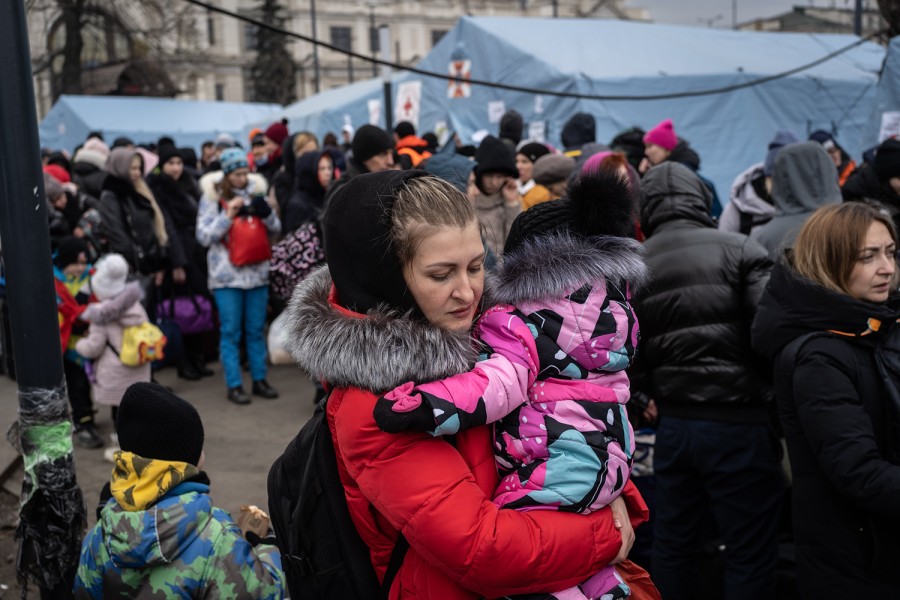New York, February 21, 2023— Since Russia invaded Ukraine in late February 2022, the world has witnessed innumerable war crimes and other human rights violations, including indiscriminate attacks against civilians, summary executions, torture and ill-treatment, sexual and gender-based violence (SGBV), unlawful detentions, and forced deportation. Already at least 6,000 civilians have lost their lives and another 9,000 have been wounded, though these numbers are thought to be dramatically higher.
In response, officials in Ukraine and members of the international community have launched multiple—and unprecedently expansive—efforts to investigate and prosecute these atrocities. Most, however, narrowly focus on criminal prosecution and often overlook the immediate needs and perspectives of victims.
Today, the International Center for Transitional Justice (ICTJ) is releasing a new briefing paper, “Reflections on Victim-Centered Accountability in Ukraine.” The paper examines the various actions that have been taken or are under consideration to investigate and prosecute war crimes and other human rights violations in Ukraine. It explores the myriad challenges they face and how tools from the field of transitional justice can be applied in tandem to deliver justice and reparation to victims and lay the foundation for a more inclusive and democratic Ukraine.
“Experiences from countries around world that have grappled with massive human rights violations have shown time and again that judicial procedures alone cannot provide a comprehensive justice,” stresses Kelli Muddell, the paper’s coauthor and a senior program expert at ICTJ. “These contexts require multiple approaches that meet victims where they are and that take a long view toward lasting peace and robust, transparent, democratic, and inclusive institutions.”
According to the authors, the ongoing initiatives to investigate crimes committed in the war offer an opportunity. Specifically, the vast amount of documentation that government, civil society, and international actors have been gathering for use as evidence in criminal proceedings can be harnessed to advance other justice-related objectives. For instance, this information could serve a truth-seeking process that aims to establish a victim-centered historical record of the war and challenge divisive narratives which may downplay the unlawfulness of Russia’s aggression against Ukraine or point to purported double standards in how the international community has dealt with the crisis. The collected information could also inform the design of a more coordinated and forward-looking assistance program, including a much-needed reparations program.
“While Ukraine is defending its integral territory and resisting a brutal attempt to eradicate its independence and freedom, the horrors of war can easily compromise its decade-long reforms toward a tolerant and pluralistic society, which are the very reason Russia attacked,” explains Anna Myriam Roccatello, coauthor of the paper and ICTJ’s deputy executive director and director of programs. “Lessons learned from other—albeit different—conflicts should be applied to understand and address the reparative needs of victims and promote social dialogue, in order to ensure that Ukrainian institutions and society’s democratic values are not erased by the devastation of this aggression.”
The paper makes the case that criminal accountability is but one dimension of justice. For Ukrainians most acutely affected by the war, such as victims of torture and SGBV, as well as broad sectors of the civilian population whose lives have been upended and who now find themselves in desperate need, justice in fact entails a number of remedies including humanitarian assistance based on acknowledgment and repair.
International efforts should be directed at helping Ukraine create larger, multi-faceted programs to meet the population’s urgent and varied needs, deliver justice to victims, and reform institutions. Transitional justice tools and lessons from other countries can guide Ukrainians on their path forward.
__________
PHOTO: The railway station in Lviv has become a hub for those fleeing the war in Ukraine to countries in the European Union. (Serhii Korovainyi/UN Women)
